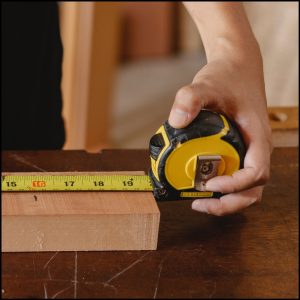 As a student, you probably have a lot of things on your plate: assignments, exams, projects, extracurricular activities, social events, and maybe even a part-time job. You want to do well in your studies, but you also want to enjoy your life and have some fun. How can you balance all these aspects of your life without feeling overwhelmed, stressed, or burned out?
As a student, you probably have a lot of things on your plate: assignments, exams, projects, extracurricular activities, social events, and maybe even a part-time job. You want to do well in your studies, but you also want to enjoy your life and have some fun. How can you balance all these aspects of your life without feeling overwhelmed, stressed, or burned out?
One way to approach this challenge is to use the framework of the Twelve Areas of Balance according to the book The Code of the Extraordinary Mind by Vishen Lakhiani. Lakhiani proposes that there are twelve areas of life that we need to pay attention to in order to achieve happiness, fulfillment, and success. These areas are:
- Your Love Relationship
- Your Friendships
- Your Adventures
- Your Environment
- Your Health and Fitness
- Your Intellectual Life
- Your Skills
- Your Spiritual Life
- Your Career
- Your Creative Life
- Your Family Life
- Your Community Life
Lakhiani argues that most people focus too much on only a few areas of life, such as career, money, or family, and neglect the others. This leads to a lack of balance and harmony in their lives, and ultimately to dissatisfaction and unhappiness. He suggests that we should aim to create a vision for each area of our lives, and then take action to make that vision a reality. By doing so, we can create a more balanced and extraordinary life.
Here, in Part 1 of our “How to Achieve Balance in Your Life” series, we explore the first four areas of balance: Your Love Relationship, Your Friendships, Your Adventures, and Your Environment. We will explain what each area means, why it is important, and how you can evaluate your current level of satisfaction in each area. We will also provide some tips and resources on how to improve your balance in these areas.
Your Love Relationship
 Your love relationship is the romantic partnership that you have with another person. It can be a marriage, a long-term relationship, or a casual dating situation. The quality of your love relationship can have a significant impact on your happiness, well-being, and personal growth.
Your love relationship is the romantic partnership that you have with another person. It can be a marriage, a long-term relationship, or a casual dating situation. The quality of your love relationship can have a significant impact on your happiness, well-being, and personal growth.
Why is it important?
Your love relationship can provide you with:
- Emotional support and intimacy
- Physical affection and sexual satisfaction
- Shared values and goals
- Mutual respect and trust
- Fun and laughter
- Growth and learning
A healthy love relationship can enhance your self-esteem, confidence, and happiness. It can also help you cope with stress, challenges, and difficulties in life. A healthy love relationship can also inspire you to grow as a person, to learn new things, to explore new experiences, and to achieve your potential.
How can you evaluate it?
 Evaluate the health of your love relationship using the following questionnaire, which is based on the work of Dr. John Gottman, a leading researcher on marital stability and satisfaction. Answer each question on a scale of 1 (not at all) to 5 (very much):
Evaluate the health of your love relationship using the following questionnaire, which is based on the work of Dr. John Gottman, a leading researcher on marital stability and satisfaction. Answer each question on a scale of 1 (not at all) to 5 (very much):
- How much do you feel that your partner understands you?
- How much do you feel that your partner respects you?
- How much do you feel that your partner appreciates you?
- How much do you feel that your partner cares about you?
- How much do you feel that your partner supports you?
- How much do you feel that your partner listens to you?
- How much do you feel that your partner is affectionate with you?
- How much do you feel that your partner is sexually compatible with you?
- How much do you feel that your partner shares your values and goals?
- How much do you feel that your partner makes you laugh?
To calculate your score, add up the numbers for each question. The higher the score, the more satisfied you are with your love relationship. A score of 40 or above indicates a high level of satisfaction, while a score of 30 or below indicates a low level of satisfaction.
How can you improve it?
 If you are not satisfied with your love relationship, there are some steps that you can take to improve it:
If you are not satisfied with your love relationship, there are some steps that you can take to improve it:
- Communicate openly and honestly with your partner about your feelings, needs, wants, and expectations.
- Listen actively and empathetically to your partner’s feelings, needs, wants, and expectations.
- Express appreciation and gratitude for your partner’s positive qualities and actions.
- Show affection and intimacy regularly through words, gestures, and touch.
- Share common interests and activities with your partner.
- Support your partner’s dreams and goals.
- Respect your partner’s opinions and preferences.
- Resolve conflicts constructively and respectfully.
- Seek professional help if needed.
Some resources that you can use to improve your love relationship are:
- “The Seven Principles for Making Marriage Work” by John Gottman and Nan Silver
- “The Five Love Languages” by Gary Chapman
- “Hold Me Tight: Seven Conversations for a Lifetime of Love” by Dr. Sue Johnson
- “Men Are from Mars, Women Are from Venus” by John Gray
Your Friendships
 Your friendships are the relationships that you have with other people who are not your romantic partner or your family members. They can be your classmates, co-workers, neighbors, or acquaintances. The quality of your friendships can have a significant impact on your happiness, well-being, and personal growth.
Your friendships are the relationships that you have with other people who are not your romantic partner or your family members. They can be your classmates, co-workers, neighbors, or acquaintances. The quality of your friendships can have a significant impact on your happiness, well-being, and personal growth.
Why is it important?
Your friendships can provide you with:
- Social support and belonging
- Fun and enjoyment
- Learning and feedback
- Diversity and perspective
- Challenge and growth
A healthy friendship can significantly uplift your self-worth, bolster your confidence, and contribute to your overall joy. Moreover, it serves as a reliable support system during times of stress, adversity, and hardship. In addition, a nourishing friendship fosters personal growth, encourages the pursuit of new knowledge, facilitates exploration of novel experiences, and ultimately empowers you to reach your fullest potential.
How can you evaluate it?
 Evaluate the health of your friendships using the following questionnaire, which is based on the work of Dr. Shasta Nelson, a leading expert on friendship and the founder of GirlFriendCircles.com. Answer each question on a scale of 1 (not at all) to 5 (very much):
Evaluate the health of your friendships using the following questionnaire, which is based on the work of Dr. Shasta Nelson, a leading expert on friendship and the founder of GirlFriendCircles.com. Answer each question on a scale of 1 (not at all) to 5 (very much):
- How much do you feel that your friends are consistent in their communication and availability?
- How much do you feel that your friends are vulnerable and authentic in their sharing and listening?
- How much do you feel that your friends are positive and affirming in their attitude and feedback?
- How much do you feel that your friends are supportive and helpful in your goals and challenges?
- How much do you feel that your friends are fun and adventurous in their activities and invitations?
- How much do you feel that your friends are diverse and interesting in their backgrounds and perspectives?
- How much do you feel that your friends are respectful and trustworthy in their words and actions?
- How much do you feel that your friends are challenging and stimulating in their ideas and opinions?
- How much do you feel that your friends are loyal and committed in their friendship and loyalty?
- How much do you feel that your friends are compatible and harmonious in their values and preferences?
To calculate your score, add up the numbers for each question. The higher the score, the more satisfied you are with your friendships. A score of 40 or above indicates a high level of satisfaction, while a score of 30 or below indicates a low level of satisfaction.
How can you improve it?
 If you are not satisfied with your friendships, there are some steps that you can take to improve them:
If you are not satisfied with your friendships, there are some steps that you can take to improve them:
- Initiate contact and communication with your friends regularly.
- Share openly and honestly with your friends about your feelings, needs, wants, and expectations.
- Listen actively and empathetically to your friends’ feelings, needs, wants, and expectations.
- Express appreciation and gratitude for your friends’ positive qualities and actions.
- Show support and help for your friends’ goals and challenges.
- Invite your friends to join you in fun and adventurous activities.
- Seek out new friends who have diverse and interesting backgrounds and perspectives.
- Respect your friends’ opinions and preferences.
- Challenge your friends to grow as people, to learn new things, to explore new experiences, and to achieve their potential.
- Be loyal and committed to your friends’ friendship and loyalty.
Some resources that you can use to improve your friendships are:
- “Frientimacy: How to Deepen Friendships for Lifelong Health and Happiness” by Shasta Nelson
- “The Friendship Formula: How to Say Goodbye to Loneliness and Discover Deeper Connection” by Kyler Shumway
- “The Art of Communicating” by Thich Nhat Hanh
- Meetup.com: This website and app allow you to find and build friendships through local meetups based on shared hobbies, interests, and activities.
Your Adventures
 Your adventures are the experiences that you have that are exciting, novel, and challenging. They can be traveling to new places, trying new activities, or pursuing your passions. Your happiness, well-being, and personal growth can be substantially affected by the quality of your adventures.
Your adventures are the experiences that you have that are exciting, novel, and challenging. They can be traveling to new places, trying new activities, or pursuing your passions. Your happiness, well-being, and personal growth can be substantially affected by the quality of your adventures.
Why is it important?
Your adventures can provide you with:
- Fun and enjoyment
- Learning and feedback
- Diversity and perspective
- Challenge and growth
- Meaning and purpose
A healthy adventure can enhance your self-esteem, confidence, and happiness. It can also help you cope with stress, challenges, and difficulties in life. A healthy adventure can also inspire you to grow as a person, to learn new things, to explore new experiences, and to achieve your potential.
How can you evaluate it?
 Use the following questionnaire to evaluate the quality of your adventures, based on the work of Dr. Tal Ben-Shahar, a positive psychology expert and the author of Happier: Learn the Secrets to Daily Joy and Lasting Fulfillment. Answer each question on a scale of 1 (not at all) to 5 (very much):
Use the following questionnaire to evaluate the quality of your adventures, based on the work of Dr. Tal Ben-Shahar, a positive psychology expert and the author of Happier: Learn the Secrets to Daily Joy and Lasting Fulfillment. Answer each question on a scale of 1 (not at all) to 5 (very much):
- How much do you feel that your adventures are enjoyable and fun?
- How much do you feel that your adventures are meaningful and purposeful?
- How much do you feel that your adventures are challenging and stimulating?
- How much do you feel that your adventures are diverse and varied?
- How much do you feel that your adventures are aligned with your values and goals?
- How much do you feel that your adventures are authentic and expressive?
- How much do you feel that your adventures are learning-oriented and feedback-rich?
- How much do you feel that your adventures are socially connected and supportive?
- How much do you feel that your adventures are flexible and adaptable?
- How much do you feel that your adventures are balanced and harmonious?
To calculate your score, add up the numbers for each question. The higher the score, the more satisfied you are with your adventures. A score of 40 or above indicates a high level of satisfaction, while a score of 30 or below indicates a low level of satisfaction.
How can you improve it?
 If you are not satisfied with your adventures, there are some steps that you can take to improve them:
If you are not satisfied with your adventures, there are some steps that you can take to improve them:
- Seek out new opportunities and experiences that interest you and excite you.
- Set realistic and specific goals for your adventures and track your progress.
- Challenge yourself to step out of your comfort zone and try new things.
- Seek out diversity and variety in your adventures and avoid boredom and routine.
- Align your adventures with your values and goals and make sure they are meaningful to you.
- Express yourself authentically and creatively in your adventures and avoid conformity and repression.
- Learn from your adventures and seek feedback from others who share your interests.
- Connect with others who enjoy similar adventures and build supportive relationships.
- Adapt to changing circumstances and be flexible in your plans.
- Balance your adventures with other areas of your life and avoid excess or neglect.
Some resources that you can use to improve your adventures are:
- Happier: Learn the Secrets to Daily Joy and Lasting Fulfillment by Tal Ben-Shahar
- 34 Quotes That Will Inspire You To Get Started On A New Adventure
- 30 Adventure Quotes to Embrace New and Exciting Experiences
- 50 Adventures to Have in Your Lifetime
Your Environment
 Your environment is the physical space that surrounds you. It can be your home, your workplace, your neighborhood, or any other place that you spend time in. As with all the previous areas of balance, the quality of your environment can have a significant impact on your happiness, well-being, and personal growth.
Your environment is the physical space that surrounds you. It can be your home, your workplace, your neighborhood, or any other place that you spend time in. As with all the previous areas of balance, the quality of your environment can have a significant impact on your happiness, well-being, and personal growth.
Why is it important?
Your environment can provide you with:
- Comfort and safety
- Beauty and aesthetics
- Functionality and convenience
- Inspiration and creativity
- Health and wellness
A healthy environment can elevate your self-esteem, bolster your confidence, and contribute to your overall happiness. It also serves as a buffer during times of stress, challenges, and adversities. Furthermore, a wholesome environment fosters personal development, encourages the acquisition of new knowledge, facilitates the exploration of fresh experiences, and empowers you to reach your full potential.
How can you evaluate it?
 Evaluate your environment quality using the following questionnaire, which is based on the work of Dr. Marie Kondo, a tidying expert and the author of The Life-Changing Magic of Tidying Up: The Japanese Art of Decluttering and Organizing. Answer each question on a scale of 1 (not at all) to 5 (very much):
Evaluate your environment quality using the following questionnaire, which is based on the work of Dr. Marie Kondo, a tidying expert and the author of The Life-Changing Magic of Tidying Up: The Japanese Art of Decluttering and Organizing. Answer each question on a scale of 1 (not at all) to 5 (very much):
- How much do you feel that your environment is comfortable and safe?
- How much do you feel that your environment is beautiful and aesthetic?
- How much do you feel that your environment is functional and convenient?
- How much do you feel that your environment is inspiring and creative?
- How much do you feel that your environment is healthy and wellness-promoting?
- How much do you feel that your environment is organized and tidy?
- How much do you feel that your environment is spacious and minimalist?
- How much do you feel that your environment is personalized and expressive?
- How much do you feel that your environment is eco-friendly and sustainable?
- How much do you feel that your environment is joyful and satisfying?
To calculate your score, add up the numbers for each question. The higher the score, the more satisfied you are with your environment. A score of 40 or above indicates a high level of satisfaction, while a score of 30 or below indicates a low level of satisfaction.
How can you improve it?
 If you are not satisfied with your environment, there are some steps that you can take to improve it:
If you are not satisfied with your environment, there are some steps that you can take to improve it:
- Make sure that your environment is comfortable and safe by eliminating any hazards or threats.
- Make sure that your environment is beautiful and aesthetic by adding elements that appeal to your senses and preferences.
- Make sure that your environment is functional and convenient by arranging it in a way that suits your needs and habits.
- Make sure that your environment is inspiring and creative by adding elements that stimulate your imagination and curiosity.
- Make sure that your environment is healthy and wellness-promoting by ensuring good air quality, lighting, temperature, and hygiene.
- Make sure that your environment is organized and tidy by discarding or donating anything that you don’t need or love.
- Make sure that your environment is spacious and minimalist by keeping only the essentials and avoiding clutter.
- Make sure that your environment is personalized and expressive by adding elements that reflect your personality and style.
- Make sure that your environment is eco-friendly and sustainable by reducing your waste, energy consumption, and carbon footprint.
- Make sure that your environment is joyful and satisfying by keeping only the things that spark joy in you.
Some resources that you can use to improve your environment are:
- “The Life-Changing Magic of Tidying Up: The Japanese Art of Decluttering and Organizing” by Marie Kondo
- Human Impacts on the Environment
- The Planet – National Geographic
- Our Environment – Components and Importance Of Environment
- If You Want To Change Your Life, Change Your Environment
Conclusion
Here, we have explored the first four areas of balance in your life: Your Love Relationship, Your Friendships, Your Adventures, and Your Environment. We have explained what each area means, why it is important, and how you can evaluate your current level of satisfaction in each area. We have also provided some tips and resources on how to improve your balance in these areas.
These four areas are essential for creating a balanced and extraordinary life as a student. By paying attention to these areas, you can enhance your happiness, well-being, and personal growth. You can also cope better with stress, challenges, and difficulties in life. You can also inspire yourself to grow as a person, to learn new things, to explore new experiences, and to achieve your potential.
Next Steps
 We hope that this blog post has inspired you to take action on improving your balance in these four areas of life. Here are some next steps that you can take:
We hope that this blog post has inspired you to take action on improving your balance in these four areas of life. Here are some next steps that you can take:
- Take the questionnaires for each area and calculate your scores. Compare them with the average scores of other students who have taken them. Identify which areas are your strengths and which areas need improvement.
- Choose one area that you want to focus on first. Set a specific and realistic goal for improving your satisfaction in that area. For example, if you want to improve your love relationship, you could set a goal of having a date night with your partner once a week for a month.
- Use the tips and resources that we have provided for each area to help you achieve your goal. For example, if you want to improve your love relationship, you could use the book The Seven Principles for Making Marriage Work by John Gottman and Nan Silver as a guide.
- Track your progress and celebrate your achievements. For example, if you want to improve your love relationship, you could keep a journal of how you feel after each date night with your partner. You could also reward yourself with something that makes you happy after completing a month of date nights.
- Repeat the process for the other areas until you achieve a high level of satisfaction in all four areas.
We would love to hear from you about how this blog post has helped you improve your balance in these four areas of life. Please leave us a comment below… we look forward to hearing from you!
Stay tuned for our next blog post where we will explore the next four areas of balance: Your Health and Fitness, Your Intellectual Life, Your Skills, and Your Spiritual Life. Until then, happy balancing!

